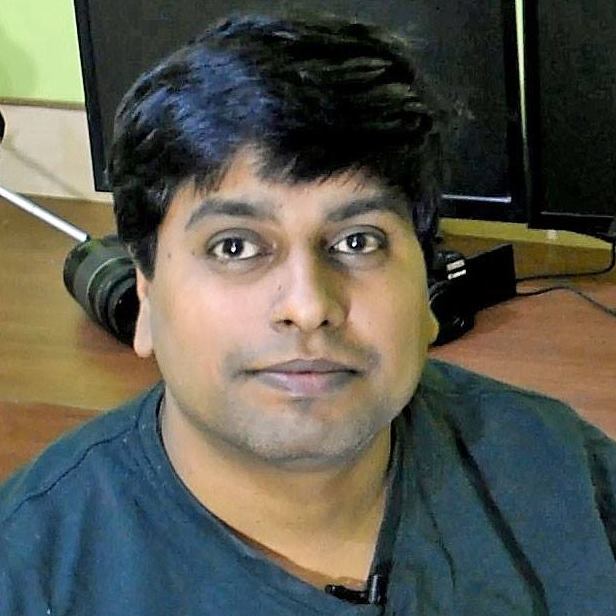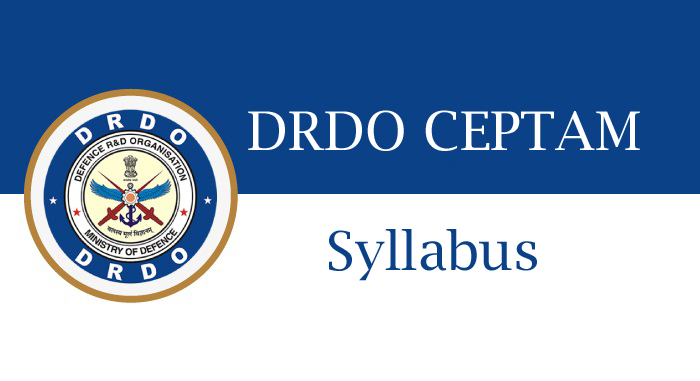As India’s premier defense research organization, the Defence Research and Development Organisation (DRDO) offers exciting opportunities through the Centre for Personnel Talent Management (CEPTAM) for technical and administrative roles. With the DRDO CEPTAM 11 notification expected soon—building on the success of CEPTAM 10—the competition is fierce. Understanding the DRDO CEPTAM syllabus 2026 and exam pattern is your first step to cracking this exam.
In this comprehensive guide, we’ll break down the DRDO CEPTAM syllabus for Tier 1 and Tier 2, post-wise exam patterns, key topics, and proven preparation strategies. Whether you’re targeting Senior Technical Assistant-B (STA-B), Technician-A (Tech-A), or Admin & Allied (A&A) posts, this post has everything you need to ace the DRDO CEPTAM 2026 exam. Let’s dive in!
What is DRDO CEPTAM Recruitment 2026?
The DRDO CEPTAM (Centre for Personnel Talent Management) is DRDO’s dedicated wing for recruiting non-gazetted staff across 50+ labs and establishments. The 2026 cycle, likely CEPTAM 11, will fill vacancies in technical cadres (like STA-B and Tech-A) and administrative roles (like Stenographer, Administrative Assistant, and Multi-Tasking Staff or MTS).
Based on previous notifications (e.g., CEPTAM 10 in 2022), expect thousands of vacancies with salaries under the 7th Pay Commission—ranging from ₹18,000–₹81,700 depending on the post. The selection process emphasizes Computer-Based Tests (CBT), trade tests, and skill assessments. No negative marking applies, making it candidate-friendly.
Key Highlights for DRDO CEPTAM 2026:
- Eligibility: Varies by post—10th/ITI for Tech-A, Diploma/B.Sc. for STA-B, and 12th/Graduation for A&A.
- Application Mode: Online via drdo.gov.in (expected launch: early 2026).
- Exam Dates: Tier 1 likely in mid-2026; Tier 2 follows.
- Why Prepare Now? The syllabus remains consistent, so starting early gives you an edge.
DRDO CEPTAM 2026 Exam Pattern: Tier 1 and Tier 2 Overview
The DRDO CEPTAM exam pattern 2026 is multi-tiered, with objective MCQs in CBT mode (English/Hindi bilingual). Tier 1 is screening-based, while Tier 2 is qualifying or merit-deciding. Total duration: 90–120 minutes per tier. Qualifying marks: 40% (UR/OBC), 35% (SC/ST).
Here’s a post-wise breakdown:
For Technical Cadre (STA-B and Tech-A)
| Post | Tier | Mode | Questions/Marks | Duration | Sections |
|---|---|---|---|---|---|
| STA-B | Tier 1 (Screening) | CBT (MCQ) | 120 Qs / 120 Marks | 90 min | Quantitative Aptitude, Reasoning, General Awareness, English, General Science |
| STA-B | Tier 2 (Descriptive/Subject-Specific) | CBT (MCQ) | 100 Qs / 100 Marks | 90 min | Discipline-specific (e.g., Mechanical, Electronics) |
| Tech-A | Tier 1 (Screening) | CBT (MCQ) | 120 Qs / 120 Marks | 90 min | Same as STA-B Tier 1 |
| Tech-A | Tier 2 (Trade Test) | Practical | Qualifying (1–2 hours) | Varies | ITI-level trade skills (e.g., Welding, Fitting) |
For Admin & Allied (A&A) Cadre
| Post | Tier | Mode | Questions/Marks | Duration | Sections |
|---|---|---|---|---|---|
| A&A Posts (e.g., Admin Asst., Stenographer) | Tier 1 (Screening) | CBT (MCQ) | 150 Qs / 150 Marks | 120 min | Quantitative Aptitude, Reasoning, General Awareness, English/Hindi |
| A&A Posts | Tier 2 (Skill Test) | Typing/Descriptive | Qualifying | 90–120 min | Post-specific (e.g., Typing speed for Stenographer) |
For MTS
| Post | Tier | Mode | Questions/Marks | Duration | Sections |
|---|---|---|---|---|---|
| MTS | Tier 1 (Screening) | CBT (MCQ) | 100 Qs / 100 Marks | 90 min | General Intelligence, Awareness, Arithmetic |
| MTS | Tier 2 (Descriptive) | Written | Qualifying | 90 min | Science, Math, English |
Pro Tip: Tier 1 scores are normalized. Focus on speed and accuracy—no penalties for guesses!
Detailed DRDO CEPTAM Syllabus 2026: Subject-Wise Topics
The DRDO CEPTAM syllabus 2026 aligns with Class 10–12 standards for Tier 1 and post-specific for Tier 2. Download the official PDF from drdo.gov.in once released, but here’s a detailed topic-wise guide based on the latest patterns.
Tier 1 Syllabus (Common for Most Posts)
1. Quantitative Ability/Aptitude & Arithmetic/Numerical Ability
- Number Systems, Whole Numbers, Decimals, Fractions
- Percentages, Ratio & Proportion, Averages, Interest (Simple/Compound)
- Profit & Loss, Discount, Mensuration (Area, Volume)
- Time & Work, Time & Distance, Mixtures & Alligations
- Algebra (Basic Equations), Geometry, Data Interpretation
2. General Intelligence & Reasoning Ability
- Analogies, Similarities & Differences, Spatial Visualization
- Spatial Orientation, Problem-Solving, Analysis & Judgment
- Decision Making, Visual Memory, Discrimination
- Observation, Relationship Concepts, Arithmetical Reasoning
- Verbal & Figure Classification, Coding-Decoding, Syllogism
- Non-Verbal Series, Puzzles, Seating Arrangement
3. General Awareness
- Current Events (National/International), History, Culture
- Geography, Economics, Indian Polity & Constitution
- Scientific Research, Sports, Awards, Books & Authors
- Important Days, Abbreviations, Static GK (e.g., Capitals, Currencies)
4. English Language (Basic Knowledge)
- Vocabulary (Synonyms, Antonyms), Grammar (Tenses, Articles)
- Sentence Structure, Error Spotting, Fill in the Blanks
- Comprehension Passages, Idioms & Phrases
- One-Word Substitution, Active/Passive Voice
5. General Science (For STA-B/Tech-A)
- Physics: Motion, Force, Work, Energy, Light, Sound
- Chemistry: Matter, Atoms, Acids/Bases, Metals/Non-Metals
- Biology: Human Body, Nutrition, Diseases, Environment, Plants
Tier 2 Syllabus (Post/Discipline-Specific)
- For STA-B: Matches Diploma/B.Sc. level—e.g., Mechanical (Thermodynamics, Fluid Mechanics), Electronics (Circuits, Digital Logic), Chemistry (Organic/Inorganic Reactions).
- For Tech-A: Trade-specific practicals—e.g., Electrician (Wiring, Motors), Fitter (Tools, Blueprints).
- For A&A: Typing (35 wpm English/30 wpm Hindi), Translation (for JTO), Physical Tests (for Fireman/Security).
- For MTS: Basic Science/Math/English at Class 10 level.
Weightage Insight: In Tier 1, Quantitative & Reasoning hold 40–50% weight; General Awareness 20–30%.
How to Prepare for DRDO CEPTAM 2026: Expert Tips & Strategy
Cracking DRDO CEPTAM 2026 requires smart planning. Here’s a 6-month roadmap:
- Build Foundations (Months 1–2): Cover Tier 1 basics using NCERT books (Class 9–12). Solve 50 questions daily per subject.
- Practice Tier 2 (Months 3–4): For technical posts, refer to ITI/Diploma notes. Practice trade simulations.
- Mock Tests & Analysis (Months 5–6): Take 2 full mocks weekly. Analyze errors—aim for 80% accuracy.
- Time Management: Allocate 1 min/question in CBT. Revise weak areas via flashcards.
- Stay Updated: Follow DRDO’s website for syllabus tweaks. Read newspapers for GK.
Recommended Books:
- Quantitative Aptitude: R.S. Aggarwal
- Reasoning: Arihant Publications
- General Awareness: Lucent’s GK
- English: Wren & Martin
- Technical: Subject-specific (e.g., “Objective Mechanical Engineering” by P.K. Mishra)
Common Mistakes to Avoid: Ignoring Tier 2 practicals or skipping mocks. Stay healthy—yoga for focus!
Why Choose DRDO CEPTAM Careers? Perks & Opportunities
Joining DRDO means contributing to India’s defense tech—missiles, radars, and more. Benefits include job security, promotions, HRA, medical facilities, and pensions. It’s not just a job; it’s a mission!
Conclusion: Your Path to DRDO Success Starts Here
The DRDO CEPTAM syllabus 2026 is your blueprint to a rewarding career in defense R&D. With consistent effort and the right resources, you can secure your spot. Bookmark this guide, download the syllabus PDF when available, and start preparing today. Got questions? Drop them in the comments!
For official updates, visit drdo.gov.in. Share this post if it helped—good luck, future DRDO warriors!

Hi, I’m Varun Pathak, the founder of TheSarkariNaukri.com—a dedicated platform for the latest updates on government jobs (Sarkari Naukri) in India. With years of experience curating reliable information on job vacancies, admit cards, exam results, and preparation strategies, I help thousands of aspirants navigate the competitive world of public sector opportunities. Passionate about job security, career growth, and empowering freshers for roles like IAS, IPS, and PSU positions, I update the site regularly with actionable insights for 2025 and beyond. Let’s connect to turn your career dreams into reality!
